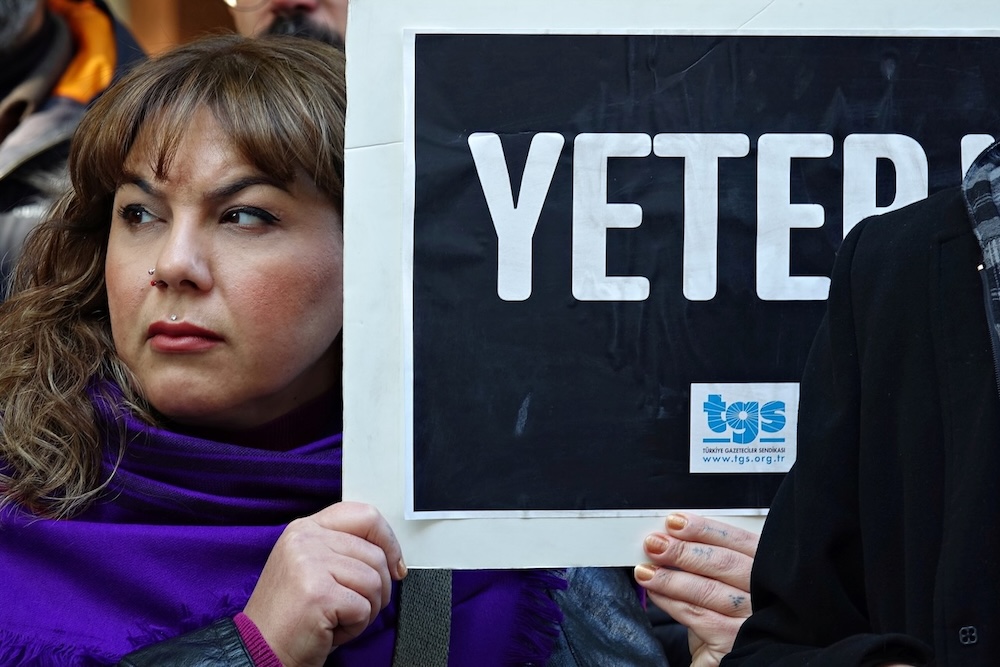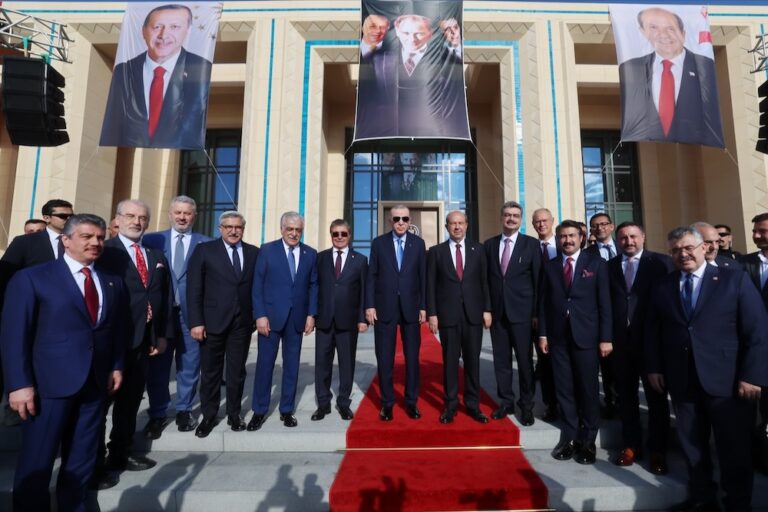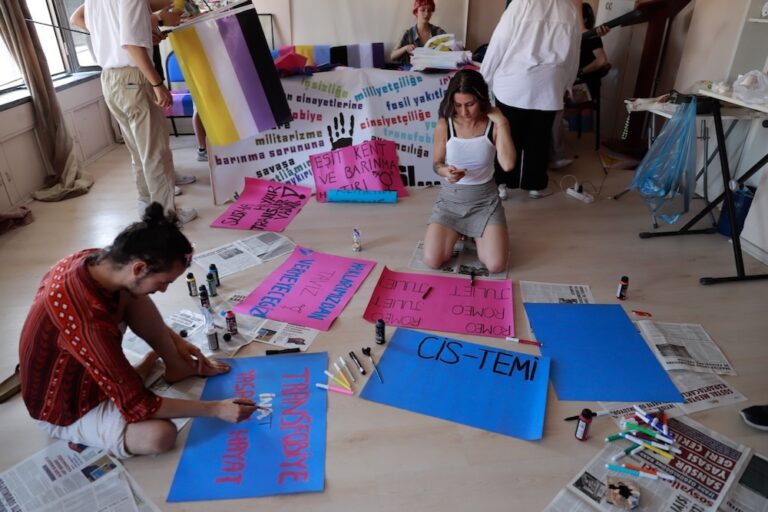The final month of 2024 also saw the killing of journalists Cihan Bilgin and Nazım Daştan in northern Syria in an attack by an alleged Turkish drone.
This statement was originally published on expressioninterrupted.com on 14 February 2025.
In the last quarter of 2024, 181 journalists stood trial in 102 separate cases. 18 journalists were sentenced to a total of 24 years, 11 months and 16 days in prison and a judicial fine of 19,860 TL. At least 25 new cases were filed against journalists, 58 journalists were detained, 11 were jailed
The 12th of our Freedom of Expression and the Press Agenda quarterly reports has been published. Aimed at presenting an overview of the media freedom and freedom of expression environment in Turkey, our reports are based on data compiled through our trial monitoring work and research of open sources of information. The latest edition covers the months of October, November and December 2024.
The full text of the report is available here.
The findings in the report showed that the years-long decline in press freedom and freedom of expression in Turkey continued with harsh interventions in the last quarter of 2024.
The killing of journalists Cihan Bilgin and Nazım Daştan in northern Syria in an attack by an alleged Turkish drone on 19 December, the detention of dozens of journalists for protesting the killing of their colleagues and the arrest of seven among them, were among the harshest interventions against press freedom in this reporting period.
Increase in number of detentions, investigations and court cases
In October, November and December, at least 58 journalists and media workers were detained at least once either as part of investigations/cases against them or during news coverage/protests. This is the highest number of detentions recorded in a quarter in our Freedom of Expression and the Press Agenda reports to date. In the same period, 44 journalists were subjected to at least one criminal investigation and at least 25 new cases were filed against journalists and media outlets. These findings were indicative of an intensifying crackdown on press freedom in Turkey.
The number of journalists in prison also increased in this quarter. Eleven journalists were arrested as part of investigations against them during the reporting period. The number of journalists in prison, which was 26 as of the beginning of the reporting period, was 34 as of 31 December 2024.
181 journalists tried, 18 sentenced
While new investigations and cases continued being filed against journalists on the grounds of their professional activities, cases launched in previous periods continued in the last quarter of 2024. Courts of first instance heard a total of 102 cases filed against 181 journalists and one newspaper during this three-month period. Of the 102 cases heard, 11 were new lawsuits.
Twenty-seven of the cases heard were concluded in this period. In 11 of these cases, 18 journalists were sentenced to a total of 24 years, 11 months and 16 days in prison and a judicial fine of 19,860 TL.
Journalists mostly faced “terrorism propaganda” charges
In this period, the most frequently used charges in journalism trials were “terrorism propaganda” and “membership in a terrorist organization.” Journalists were charged with “making propaganda for a terrorist organization” in 24 separate cases and “membership in a terrorist organization” in 20 cases. The third most common charge was “insult/insulting a public official,” which was used in 18 separate cases, while journalists were charged with “insulting the president” in 13 cases.
Threats, violence, attacks against journalists; impunity for perpetrators
Incidents of violent police interventions, attacks and threats targeting journalists also did not slow down in the last quarter of 2024. At least 20 incidents of attacks, interventions, police brutality or threats against journalists were recorded.
Cases launched due to violations suffered by journalists and media organizations also continued during the reporting period. Five of these cases concluded. In two of these cases, two of the three defendants who were tried as perpetrators of attacks against journalists were acquitted while one defendant was sentenced to a judicial fine of 4,800 TL and the announcement of the sentence was deferred. These rulings continued to add to the perception of impunity for crimes against journalists.
Açık Radyo’s broadcast shut down, recall order for Yeni Yaşam
The shutting down of Açık Radyo’s broadcast after its license was revoked by a decision of the Radio and Television Supreme Council (RTÜK); recall orders issued for several issues of Yeni Yaşam newspaper published in October and November on the grounds of news content and news photographs; the blocking of access to the website of Mezopotamya News Agency (MA) on the grounds of “protection of national security and public order”; the blocking of access to at least 119 social media accounts, including those of journalists and news websites, on the grounds of “FETÖ propaganda”; and the restriction of access to social media platforms X, Instagram, Facebook, YouTube and TikTok following the attack on TAI facilities in Ankara were among the significant interventions targeting media outlets and the social media during the reporting period.
RTÜK fined broadcasters 31 million TL
In the last three months of 2024, RTÜK continued to serve as a tool of financial pressure on media outlets. The Council imposed administrative fines totaling 31,459,795 TL on mostly pro-opposition broadcasters, citing “violations of the broadcasting principles” listed in Article 8 of Law No. 6112 due to certain expressions used in news and discussion programs.
“Agents of influence” bill remains on the agenda
During the reporting period, the government introduced the controversial “agents of influence” bill to parliament. The revised text of the proposed legislation, which was excluded from the 9th Judicial Package following objections from press freedom groups and the opposition, continued to be the focus of criticism due to concerns that its vague and broadly interpretable wording would lead to serious violations of the freedom of expression. Although the bill was withdrawn on 13 November, AKP lawmakers stated that they would consult with opposition parties that objected to the proposal and that the bill would be reintroduced in its current form if no suggestions were made by the opposition.



